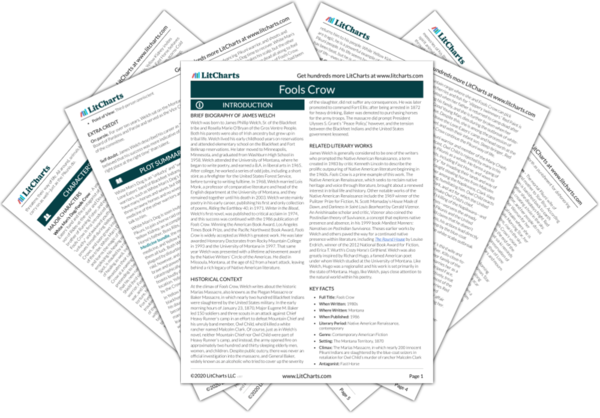As a woman, Red Paint does not attend camp meetings and she is not privy to all of Owl Child’s offenses and the trouble that he is sure to bring to the Pikunis. Still, Red Paint senses the trouble, and she has sensed for some time that Fast Horse is a bad egg. Even Mik-api tries to placate her with a smile, but she doesn’t by it.
